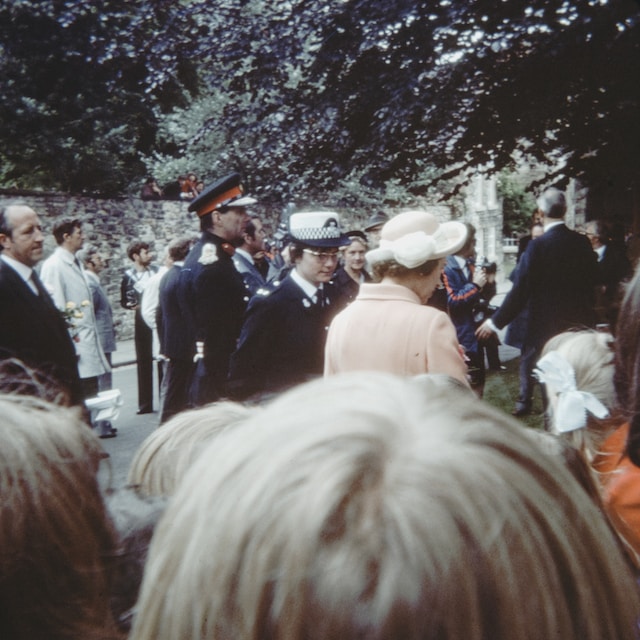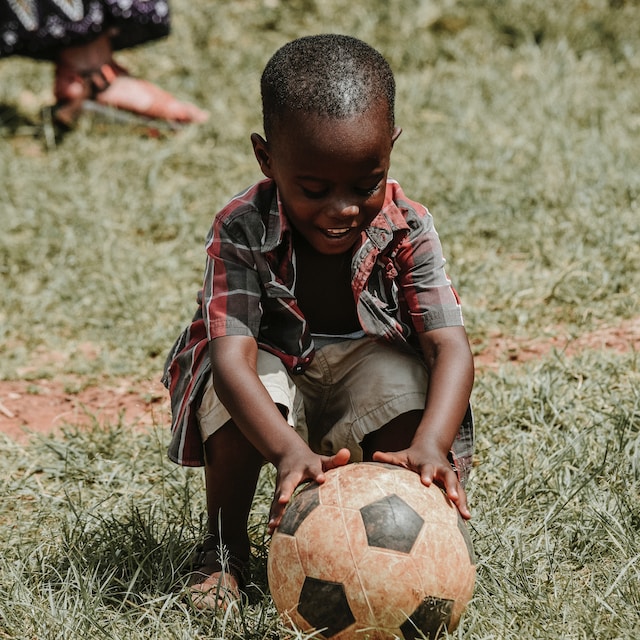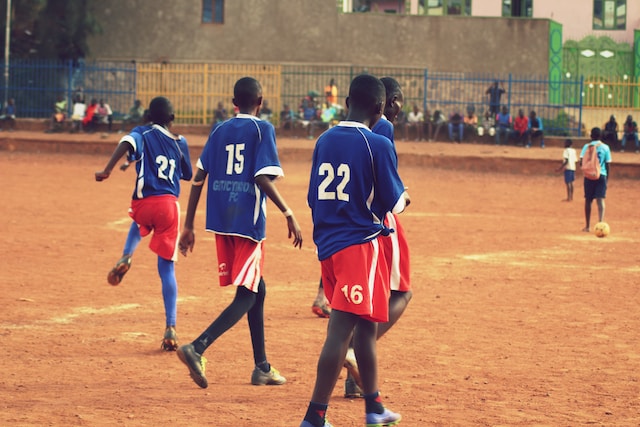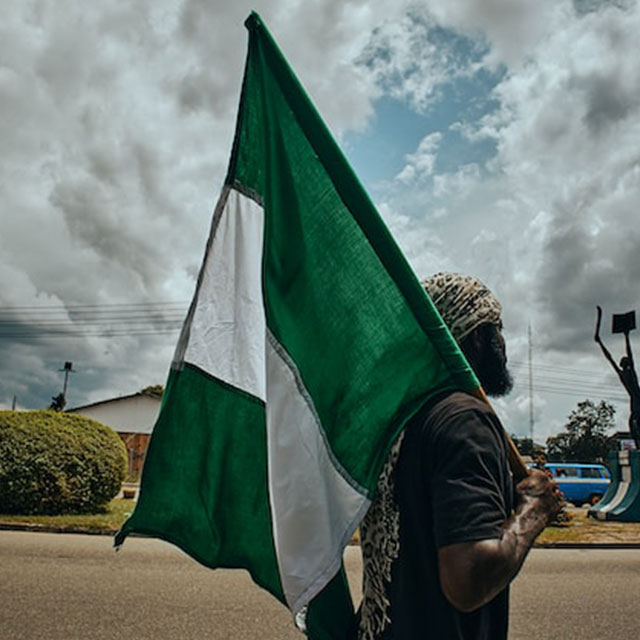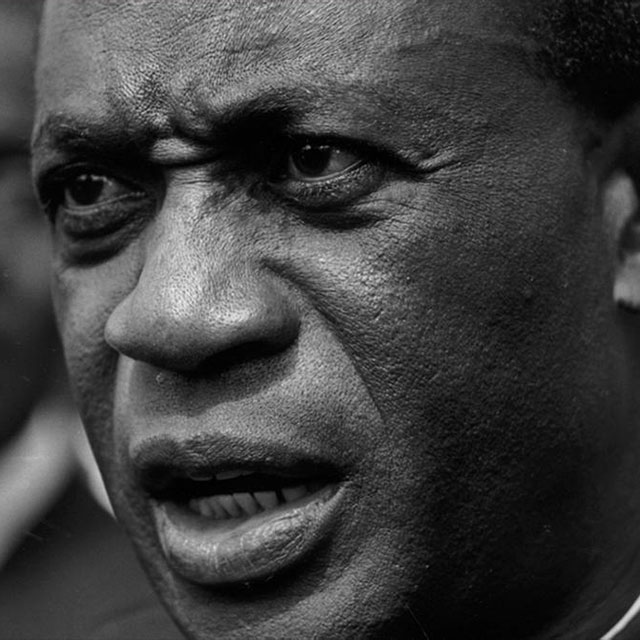
With over ten years of experience co-developing multi-sector innovation strategies…
As a Christian living in Africa, I often find myself caught between two worlds. On the one hand, there is the rich and vibrant culture of my homeland, with its traditions and beliefs that have been passed down through generations. On the other hand, there is the imposing and often conflicting presence of Christianity, with its foreign beliefs and practices that have been grafted onto the cultural landscape.
I find myself wrestling with these contradictions on a daily basis, questioning my own faith and the role that the church plays in shaping our society and culture. Is Christianity truly a force for good in Africa, promoting progress and development, or is it simply a tool of exploitation, used by the powerful to maintain their grip on the people?
At times, I am filled with doubt and uncertainty, questioning the very existence of God and the validity of the Christian faith. But then I am reminded of the power and beauty of the church, of the way that it has brought hope and healing to so many in our communities.
The friction between traditional African beliefs and Christianity is a complex and multifaceted issue, one that demands critical thinking and introspection. It is a clash of cultures that has been playing out for centuries, with no clear end in sight. But perhaps it is in this very friction that we can find the answers we seek. By examining the complexities of Christianity in Africa, we can better understand the role that the church plays in shaping our society and culture, and work towards a future that embraces both our cultural heritage and the transformative power of the Christian faith.
So let us continue the conversation on the role of Christianity in Africa, questioning, doubting, and wrestling with these contradictions, and working together towards a better future for ourselves and for future generations of Africans.
It’s a funny thing, this thing called Christianity in Africa. People cling to it like a life raft, even as their world falls apart around them. It’s a faith that promises salvation, redemption, and hope, but at what cost?
I’ve seen the way that people react when you question the role of the church in shaping the current state of Africa. They become defensive, hostile, even angry. They seem to see any criticism of the church as an attack on their very identity. But is this really the case? Are we to accept blindly the role that the church has played in shaping our society and culture? Are we to ignore the contradictions and the conflicts that exist between traditional African beliefs and the foreign import of Christianity?
As a Christian myself, I struggle with these questions on a daily basis. I see the good that the church can do, the way that it can uplift and empower people in their darkest moments. But I also see the way that it can be used as a tool of exploitation and control, the way that it can be manipulated to serve the interests of the powerful and the privileged.
It’s a battle that rages within me, a war between faith and doubt, between hope and despair. I want to believe in the transformative power of Christianity, in the way that it can bring hope and healing to our broken world. But at the same time, I can’t ignore the reality of the situation, the way that the church has been used to perpetuate poverty and oppression, to silence dissent and maintain the status quo.
So where do we go from here? How do we reconcile these contradictions, these conflicting ideas and beliefs? Is it possible to have faith in the church and yet still question its role in shaping our society and culture?
I believe that it is. I believe that we can continue to have these difficult conversations, to question and challenge the status quo, and to work towards a future that embraces both our cultural heritage and the transformative power of the Christian faith.
It won’t be easy. It will require deep introspection, critical thinking, and a willingness to challenge our own beliefs and assumptions. But in the end, I believe that it is worth it. Because only by confronting the contradictions and the conflicts within ourselves can we hope to build a better future for ourselves and for future generations of Africans.
Why is it that so many Christians, or people in general, struggle with criticism of the church? Is it a sense of loyalty, a fear of being ostracized or shamed, or is it something deeper, more complex, and more primal?
As a Christian myself, I know how difficult it can be to hear criticism of the church. It can feel like a personal attack, a challenge to our most deeply held beliefs and values. We want to believe that the church is a force for good, a source of hope and healing in a broken world.
But at the same time, we can’t ignore the reality of the situation. We can’t ignore the way that the church has been used to perpetuate poverty and oppression, to silence dissent and maintain the status quo. We can’t ignore the way that the church has been co-opted by the powerful and the privileged, used as a tool of exploitation and control. So why do we struggle with criticism of the church? Perhaps it’s because we’re afraid to confront the contradictions within ourselves. We want to believe that our faith is unshakeable, that our beliefs are unassailable. But the reality is that our beliefs are often shaped by our own experiences, our own biases, and our own cultural background.
We are human, after all, and our understanding of the world is always limited and imperfect. We cling to our beliefs, our traditions, our sense of identity, even when they are challenged or contradicted.
But perhaps it is in this struggle that we can find hope. Perhaps it is in the wrestling with these contradictions that we can find a deeper understanding of ourselves, of our faith, and of the role of the church in shaping our society and culture.
It won’t be easy, and it won’t be comfortable. It will require us to confront the difficult truths about our beliefs and our values, to challenge the status quo, and to work towards a future that is both hopeful and just. But in the end, it is a struggle that is worth it. Because only by confronting the contradictions and the conflicts within ourselves can we hope to build a better future for ourselves and for future generations. So let us continue to question, to doubt, to wrestle with these contradictions, and to work towards a future that embraces both our faith and our sense of justice and equity.
Our identity is tied to our beliefs in ways that are often difficult to comprehend. We define ourselves by what we believe, by the values and principles that guide our lives, and by the traditions and customs that have been passed down through generations.
For many of us, our religious beliefs are a fundamental part of our identity. They shape the way we see ourselves, the way we interact with the world around us, and the way we understand our place in the universe. Our beliefs give us a sense of purpose, a sense of direction, and a sense of belonging.
But our identity is also tied to other things as well. It is tied to our cultural background, to the traditions and customs that have shaped our lives. It is tied to our family, to the people who have raised us and who continue to shape our understanding of the world. And it is tied to our experiences, to the joys and sorrows, the triumphs and failures, that have shaped our lives.
All of these things combine to create a complex and multifaceted sense of identity, one that is often difficult to articulate or even understand. We are shaped by our beliefs, our culture, our family, and our experiences, and all of these things come together to create a unique and complex understanding of ourselves.
This is why it can be so difficult to confront our beliefs, to question the things that we hold most dear. To do so is to confront not just our understanding of the world, but our understanding of ourselves.
But perhaps it is in this confrontation that we can find hope. Perhaps it is in the questioning and the doubting that we can find a deeper understanding of ourselves and of the world around us.
We must be willing to question our beliefs, to confront the difficult truths about ourselves and our society, and to work towards a future that embraces both our cultural heritage and the transformative power of critical thinking and analysis.
Only then can we hope to build a world that is just, equitable, and truly reflective of the rich and complex identities that make us who we are.
The complex relationship between Christianity and identity in Africa is not one that can be easily understood. It is a tangled web of contradictions and conflicting beliefs, a clash of cultures that has been playing out for centuries.
At the heart of it all is the question of what it means to be a Christian in Africa. Is it a source of hope and healing, a way to break free from the traditions and superstitions of our cultural past? Or is it a tool of exploitation, used to maintain the status quo and perpetuate poverty and oppression? The truth, as always, lies somewhere in the middle. Our identity is complex and multifaceted, shaped by our beliefs, our culture, our family, and our experiences. It is a delicate balance, one that is often difficult to maintain.
But the challenges we face in defining our identity are not limited to the realm of religion. They extend into politics, into issues of prejudice and judgment, and into the hypocrisies and contradictions that define our society. It is a heavy burden to bear, this struggle with identity and belief. It can be a dark and twisted journey, one that is filled with heartache, confusion, and doubt. But it is also a journey that is worth taking, because only by confronting the difficult truths about ourselves and our society can we hope to build a better future. So let us continue to question, to doubt, to wrestle with these contradictions. Let us work towards a future that embraces both our cultural heritage and the transformative power of critical thinking and analysis. It won’t be easy. It will require us to confront our own prejudices and biases, to challenge the status quo, and to work towards a more just and equitable society. But it is a struggle that is worth it, because only by confronting the contradictions and the conflicts within ourselves can we hope to build a better future for ourselves and for future generations.
What's Your Reaction?
With over ten years of experience co-developing multi-sector innovation strategies and shaping policy with global institutions. My research and work focus on value and transform systems across education, design, life science, and manufacturing industries.

